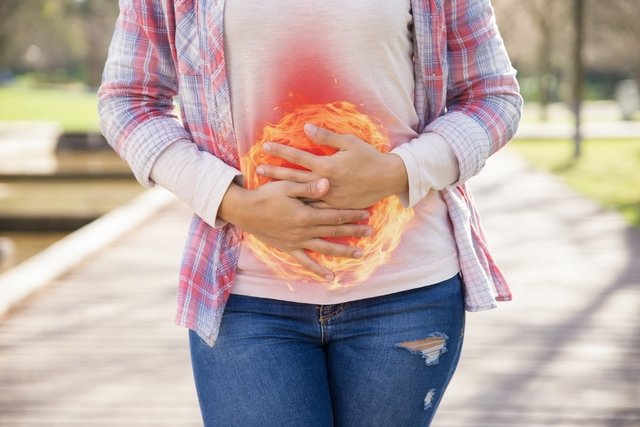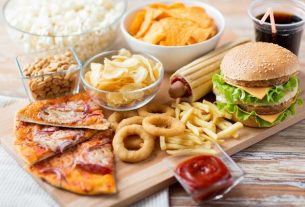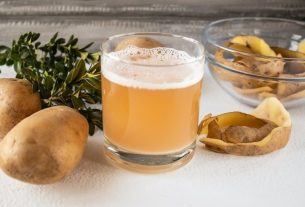Heartburn is a burning sensation that can be caused by some factors, such as drinking alcohol, foods with a high fat content, being overweight, pregnancy or smoking.
The burning sensation may also be related to gastroesophageal reflux, which is a disease caused by the return of stomach contents to the esophagus, causing pain and discomfort. Understand better what reflux is and how to treat it.
The main symptom of heartburn is the burning sensation that begins in the region below the chest and goes up to the throat and can begin within 2 hours after ingesting food or drink, during physical exercise, when lying on your back. overhead or during the night. Find out the main symptoms and how to avoid heartburn.
Main causes
The main causes of heartburn and burning are:
1. Smoking
The chemical substances in cigarettes, such as nicotine, increase the relaxation of the esophageal muscles, responsible for closing the stomach and preventing the return of stomach contents. Therefore, when the muscles of the esophagus are relaxed, gastric juice returns towards the esophagus, causing heartburn.
What to do: Quitting smoking is the most recommended, as this helps to balance the contraction of the esophageal muscles, thus improving the symptoms of heartburn.
2. Caffeinated drinks
Drinking caffeinated drinks such as coffee, cola, black tea, green tea, mate tea and chocolate can also cause heartburn symptoms. This happens because caffeine increases the relaxation of the esophageal muscles, favoring the return of gastric juice to the esophagus.
What to do: It is recommended to avoid or reduce the consumption of foods and drinks rich in caffeine and observe whether symptoms improve. Another alternative is to avoid consuming these drinks on an empty stomach.
3. Large volumes of food
Consuming large volumes of food during meals can also cause heartburn, as when the stomach becomes very full and distended, it makes it difficult for the esophageal sphincter to close, making it easier for food to return to the esophagus and throat.
What to do: Small volumes of food should be prioritized, distributed over 5 to 6 meals throughout the day, chewing the food well and calmly.
4. Pregnancy
Heartburn is common, especially in the 2nd and 3rd trimester of pregnancy, as the lack of space for the organs in the woman’s abdomen, together with the increased levels of progesterone in the blood, make it difficult for the esophageal sphincter to close, causing reflux and heartburn.
What to do: Pregnant women should eat small volumes of food, distributed over 5 to 6 meals throughout the day and only lie down 30 minutes after meals. Furthermore, it is important to maintain a balanced diet. See more tips on how to combat heartburn during pregnancy.
5. Intake of some foods
Fatty foods, such as fried foods, chocolates or ice cream, take longer to be digested, remaining in the stomach longer, which increases acid production. Furthermore, excess fat increases the relaxation of the esophageal muscles, which allows the acidic contents of the stomach to return to the esophagus, causing heartburn.
Spicy seasonings, such as curry, pepper and paprika, and citrus fruits, such as orange, lemon or pineapple, can cause irritation, increasing stomach acidity in some people, especially when the stomach is empty, which can cause heartburn.
What to do: It is important to avoid eating citrus fruits on an empty stomach and consuming foods with a high fat content. Furthermore, it is also recommended to replace spicy seasonings with herbs, such as basil, rosemary or thyme.
6. Stress
Stress can cause mood changes, increasing cravings for foods high in sugar and fat, thus favoring the onset of heartburn.
Furthermore, it is believed that stress increases the sensitivity of the esophagus, worsening burning symptoms.
What to do: Drinking natural calming teas such as chamomile or lemon balm help relax the central nervous system, relieving stress. Additionally, setting aside time for leisure activities helps reduce stress. Discover other suggestions for reducing stress.
7. Reflux
Gastroesophageal reflux disease is a condition where the acidic contents of the stomach return to the esophagus, causing, among other symptoms, heartburn.
What to do: Avoid consuming foods that increase acid production in the stomach, such as spicy seasonings, citrus fruits, fatty foods and caffeinated drinks.
8. Use of some medications
Frequent use of medications such as aspirin, ibuprofen, naproxen, citalopram, and some medications used for chemotherapy, depression, osteoporosis and high blood pressure can cause heartburn as they irritate the esophagus or cause relaxation of the esophageal muscles, facilitating the return of acidic stomach contents. to the esophagus.
What to do: frequent use of these medications should be avoided and only go to bed 30 minutes after using the medications. If symptoms persist, you should speak to your doctor to assess the possibility of replacing or using the medication in another way.
9. Laying down after meals
Lying down right after meals can increase stomach acid production and make it easier for acidic foods to return from the stomach to the esophagus, causing heartburn.
What to do: Eat your last meal no more than 2 hours before bed. Additionally, you can tilt the head of the bed, placing pillows to keep the upper part of the body elevated.
10. Drinking fluids during meals
Drinking liquids during meals makes the stomach very full, making it difficult to close the esophageal sphincter, especially when consuming carbonated drinks, such as soft drinks, as the gas in these drinks also causes stomach distension.
What to do: It is important to avoid drinking liquids 30 minutes before and after meals, to prevent the sphincter from relaxing and for digestion to occur more quickly.
11. Excess weight
Even small increases in weight can cause heartburn, especially in people with a history of poor digestion or gastritis. This probably happens because the accumulation of abdominal fat increases pressure against the stomach, favoring the return of gastric contents to the esophagus and causing a burning sensation.
What to do: You must improve your diet, avoid foods rich in fat and lose weight, so that intestinal transit can flow more easily again.
12. Consumption of alcoholic beverages
Frequent alcohol consumption can cause heartburn because alcohol relaxes the esophageal sphincter muscles, encouraging the return of food and stomach acid to the esophagus. Furthermore, alcohol increases the production of gastric juice and can cause gastritis, which usually has the burning sensation of heartburn as a symptom.
What to do: You should stop consuming alcohol and have a balanced diet, with plenty of fruits, vegetables and water to promote the proper functioning of the entire digestive system.
13. Physical activity
Some physical activities such as yoga and pilates or specific exercises such as sit-ups and movements that require lying upside down increase pressure in the abdomen and force gastric contents to return to the esophagus, causing heartburn.
What to do: It is important to eat at least 2-3 hours before practicing physical activity, and if symptoms do not improve, you should avoid exercises that cause burning and pain.

Sign up for our newsletter and stay up to date with exclusive news
that can transform your routine!
Warning: Undefined array key "title" in /home/storelat/public_html/wp-content/plugins/link-whisper-premium/templates/frontend/related-posts.php on line 12
Warning: Undefined array key "title_tag" in /home/storelat/public_html/wp-content/plugins/link-whisper-premium/templates/frontend/related-posts.php on line 13




